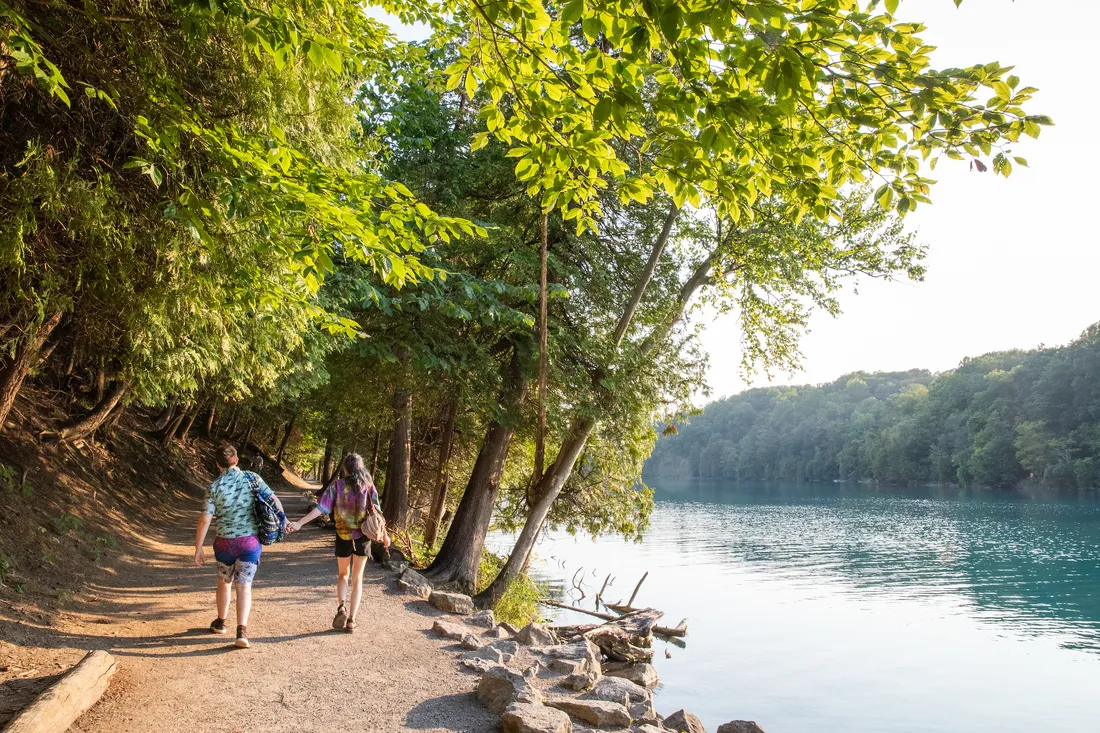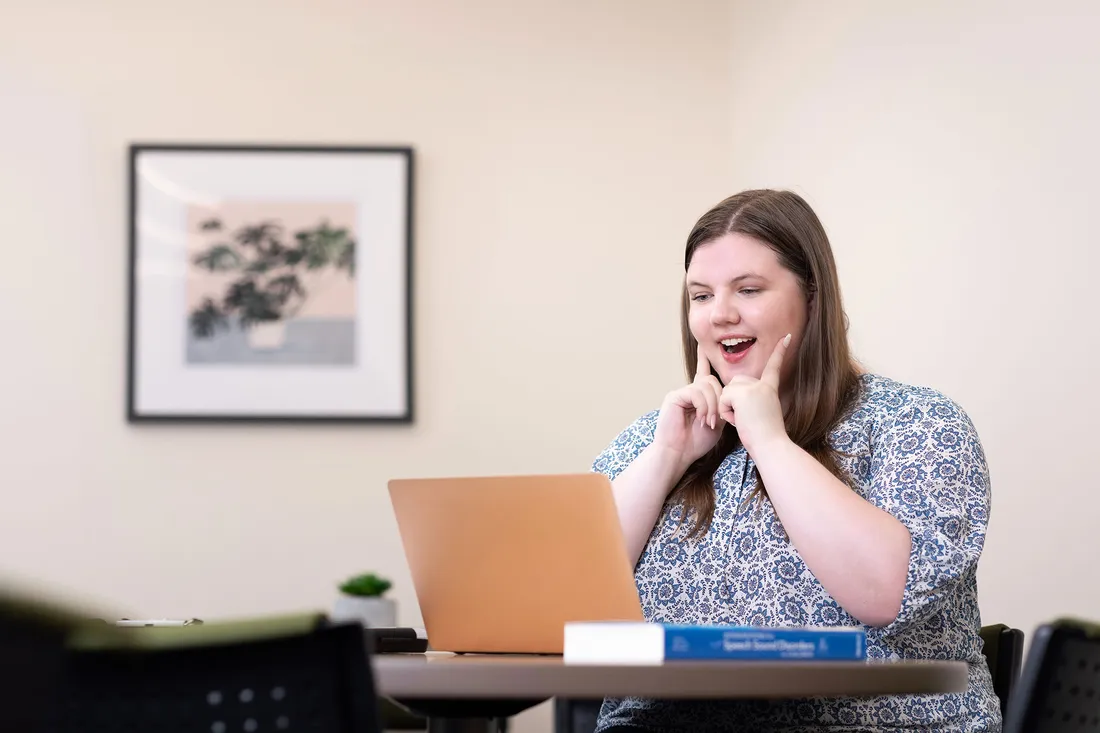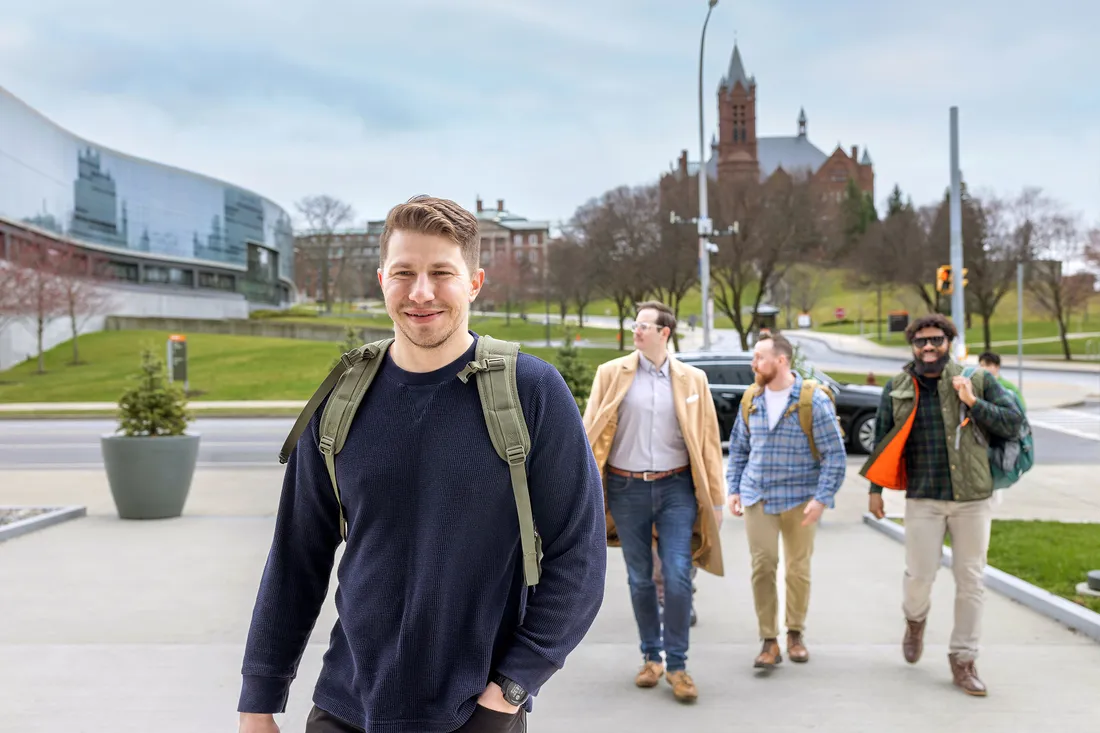
Raphael Grollmus ’24 chose to use his Post-9/11 GI Bill benefits to earn a degree at Syracuse in part because of the University’s support for veterans.
What drew Raphael Grollmus ’24 to Syracuse University was its reputation for academic excellence and commitment to veterans. But, he confesses, it was also the prospect of experiencing winter in the Northeast. Grollmus, who served nine years in the United States Marine Corps, had often been stationed in countries in the Middle East and Southeast Asia and was ready for a break from heat, he says. “I honestly like the cold—and I really like seasons. The seasons here in Central New York are absolutely gorgeous.”
From Military Experience to Civilian Career
Grollmus had first heard about Syracuse when he was growing up in Ohio, but it wasn’t until he started thinking about applying his Post-9/11 GI Bill benefits toward an education that would help him parlay his military experiences into a civilian career that Syracuse really came into focus. “I did some research and learned how much Syracuse University supports veteran and military-connected students—and that it has a great forensic science program, too.” Syracuse was the obvious choice, he says.
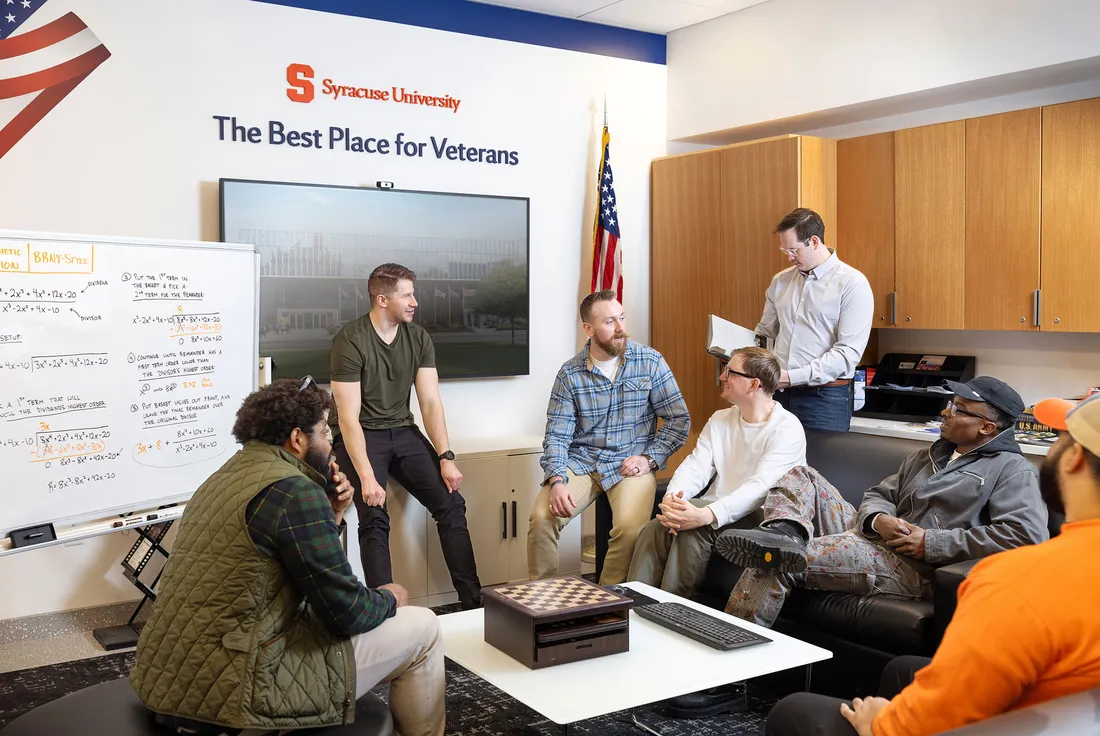
Grollmus served in the U.S. Marine Corps for nine years in the military police force. He was stationed around the world and deployed to the Middle East to assist in combat operations.
Grollmus’ interest in forensics was first inspired during his military service, when he had the opportunity to work as a forensic analyst. At Syracuse, he majored in forensic science and psychology in the College of Arts and Sciences and particularly enjoyed courses he took in forensic pathology and chemistry. Grollmus appreciated the support and mentorship of professors who were also experienced professionals in their fields. “The faculty were really fantastic,” Grollmus says. “One of my professors, Professor Grenier, had been a state trooper in New York. He taught a course on crime scene investigation that was really interactive and really fun—he was so down to earth.”
Welcoming Community and Supportive Services
Grollmus found the University community to be very welcoming. “Everyone wants to see you succeed—they want you to do the best that you can,” he explains. He saw this spirit of support manifested in the National Veterans Resource Center at the Daniel and Gayle D’Aniello Building (NVRC), which houses a range of veteran support programs. “The NVRC is such an amazing building —you won’t find anything like it anywhere else. The program here for veterans is top-notch, like this building is top-notch.”
I feel like faculty appreciate that and reciprocate by being accommodating, helpful and understanding of different needs that some veteran students may have.
Raphael Grollmus ’24
Grollmus also felt supported in the relationships he made with other students and faculty. “Many professors are very appreciative of veterans,” he says—attributing this to the maturity he feels veterans often bring to the classroom. “The military is great preparation for college—it teaches time management and work ethic. I feel like faculty appreciate that and reciprocate by being accommodating, helpful and understanding of different needs that some veteran students may have.”
Engaged in the Present and Looking to the Future
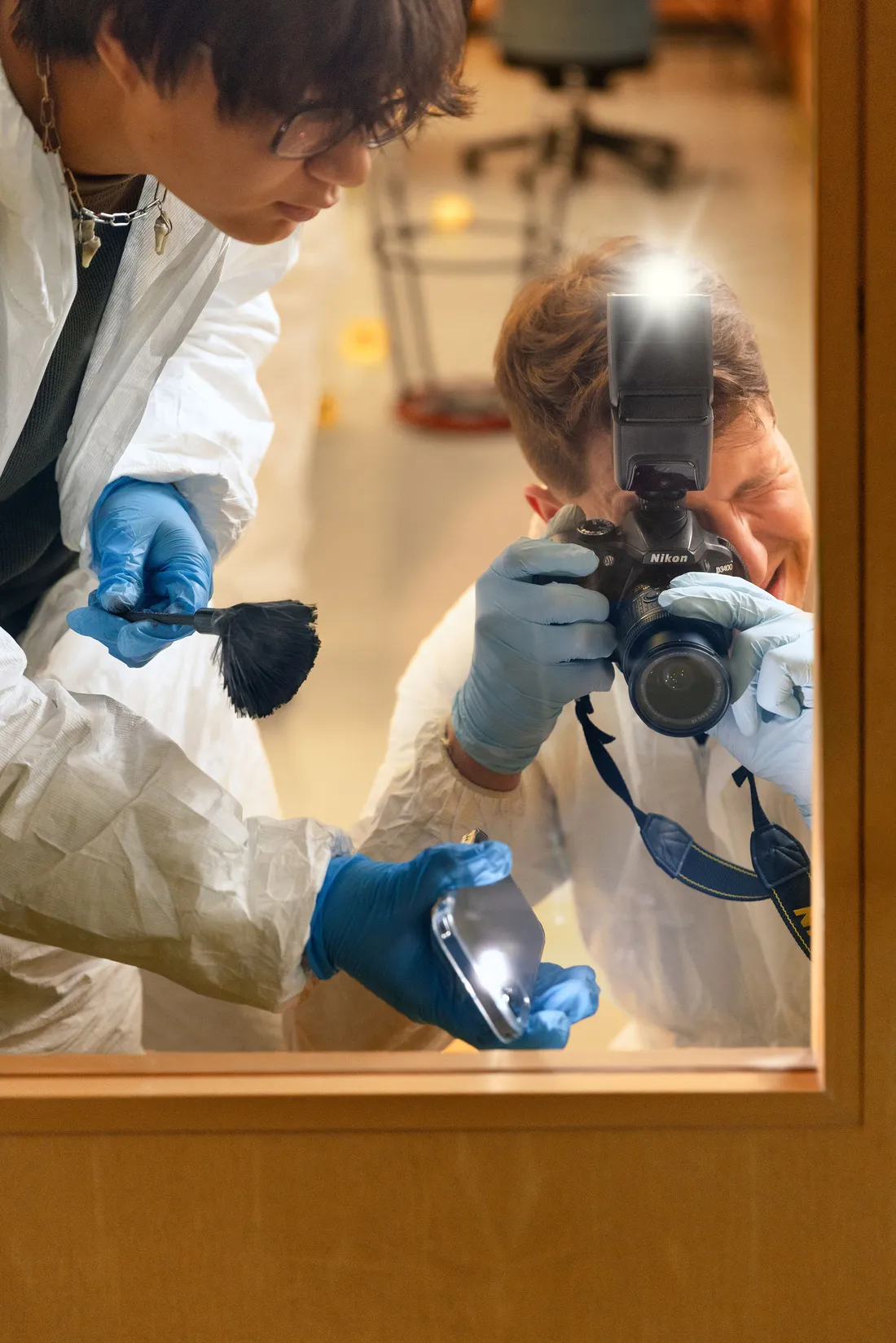
Grollmus’ interest in forensic science and psychology were inspired by his service in the military police force.
While at Syracuse, Grollmus engaged in the community beyond academics. He worked in the NVRC in a liaison role, helping connect other student veterans to resources and programs. He cheered for the Orange at a couple games and joined the Outdoor Club to explore the region. One highlight, he says, was a trip to the Adirondack Park several hours north of Syracuse.
Ultimately, Grollmus aspires to work for the FBI or the Secret Service. But when he graduated in May, it was with an acceptance to Syracuse’s forensic science master’s degree program. As he considers his next steps, he’s grateful to have an option that would allow him to extend his time at Syracuse, and enjoy the seasons of Central New York, a little longer.

